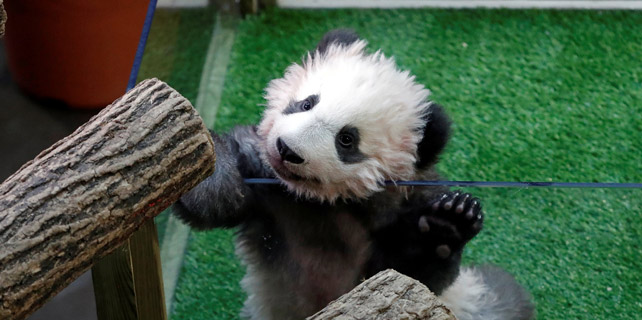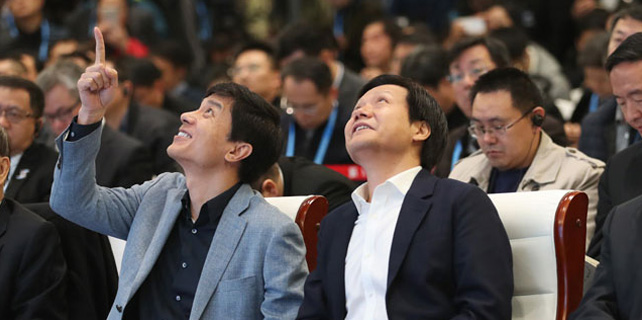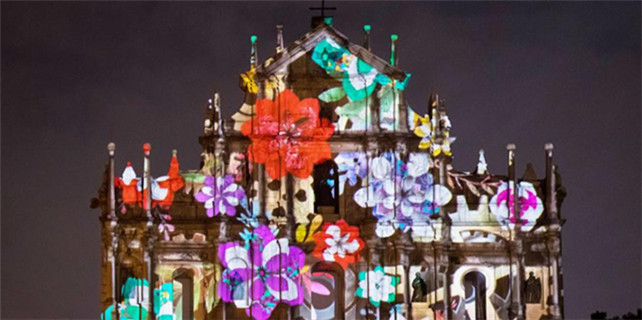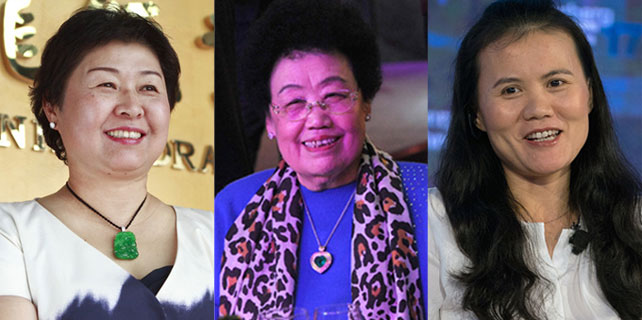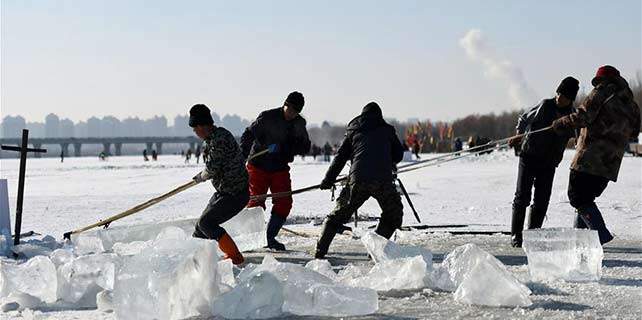Telling the story of China
A trio of recent book fairs gave literature lovers a chance to hear their favorite writers discuss how China's reform and opening-up helped shape their work
He Jianming, 62, is one of the country's leading writers of nonfiction works, especially in the field of literary reportage.
His writing career took off in 1978, the year that China's reform and opening-up process began, and it has continued to flourish in tandem with the country's development for the past 40 years. Key moments in China's history over the decades have formed the mainstay of his work.
|
Chinese writer Yu Hua (third from the left) in dialogue with 30 Sinologists. Photos Provided to China Daily |
Of his 50 books based on real-life events or characters, eight have been turned into films or television series. The three-time Lu Xun Literature Prize winner also penned The Nation, a work based on the real-life evacuation of Chinese citizens from Libya by PLA special forces in 2011. First published in 2012, the work is said to have inspired the blockbuster movie Wolf Warrior.
"I firmly believe in the power of positive thought. I turned myself from an anxious young writer, who continually worried about the problems and dissatisfaction he observed, into an author who tries to set a good example and bring warmth and brightness to his readers," He says, speaking about the transformation in his writing style over the past four decades.

"It's such a vivid, active and colorful country that I'm trying to record. With examples like the growth of the high-speed rail network and the development of the domestically made C919 passenger jet, there are so many stories that relate to our everyday life waiting to be told," he adds.
"Looking back to 40 years ago, I remember how we used to line up for 10 hours to buy a copy of Shakespeare. Now, in an age where we can download 30 books within the space of a minute and a few simple clicks, I don't believe literature is heading in a downward trajectory."
He says he once hoped that his works would sell more than 50,000 copies on their first print run and be reprinted every 10 years. His current sales have seen him not only achieve but surpass this.
This is what he told an audience of loyal readers and the media during a dialogue session at the 2018 Beijing International Book Fair, where the New World Press was launching his 30-volume Collected Works to celebrate the 40th anniversary of China's reform and opening-up.
In August, book lovers across the country were offered an unprecedented opportunity to witness appearances by Chinese literary masters at book events and conversations with foreign peers and translators across the country - as the Beijing book fair ran in conjunction with the Shanghai Book Fair and the South China Book Festival in Guangzhou, Guangdong province.
Besides He, writers of such standing as Jia Pingwa, Yu Hua, Liu Zhenyun, Mai Jia, Bi Feiyu, Wang Meng and Liu Cixin took to the stage at these events to share their thoughts.
Like He, Bi Feiyu, author of Three Sisters and Massage, also focused at the Shanghai fair on 40 years of progress and his personal experiences as a writer.
Bi was 14 when the reform and opening-up process began. He recalls the days when he and his young peers discovered the new aesthetic of tight-fitting, flared trousers.

"It was shocking for Chinese people who were used to hiding their figures under oversized clothes. This was my first gift from the reform and opening-up - to learn to be proud of our bodies, and proud of life itself," Bi says.
Seeing the works of more foreign literary masters on the shelves of a local Xinhua Bookstore was the next gift Bi received as the country continued to open up.
"I'd heard of Alexander Pushkin and Victor Hugo from my father, who was a teacher. On the day I got the chance to read them, I quickly realized the importance of spiritual dialogue - even with past masters - and how they could enrich your understanding of the world," he says.
"Writers like us are not only witnesses to the reform process, but are also a result of it," he adds.
At the Beijing fair, Jia Pingwa, a veteran writer, born in 1952, who debuted in 1974, joined a conversation about one of his works with its Spanish editor, Elena Bazan, Italian translator Patrizia Liberati and English translator Christopher Payne.
Jia also attended another event with translators Eric Abrahamsen and Nick Stember, and editor Peter Blackstock - all from the United States, at which he discussed how almost every Chinese writer of the past 40 years has in some way been influenced by Western literature.
"Chinese literature is one facet of world literature and has its own attractions. But the key task for Chinese writing remains to tell stories about the new reality of contemporary China, the complexity of human nature and how Chinese people live and survive," Jia says, adding that he had studied comparative literature in the East and West during the 1980s and '90s.
Jia is well-received in the domestic market, and each of his novels sells at least 300,000 copies. His works have been translated into 30 languages.

One of his key concerns is to what extent the essential "Chinese flavor" - the emotions, atmosphere, accents and the precision of the language - remains after the works are translated.
In fact, the nature of the translation work can sometimes become a heated topic when Chinese writers sit down with Sinologists and foreign translators who speak a variety of languages.
Yu Hua, author of To Live and Brothers, held talks with 30 Sinologists and translators at the event in Beijing, in an atmosphere not unlike a reunion of old friends.
"My way into foreign markets is to establish a good working relationship with a respected publisher or a good translator," he says. "I see all my translated works as perfect ones, because the truth about translations is, when they lose something from the original text, they add something of value in other respects."
Mai Jia, the author of Decoded, agrees. Mai's works have now been sold in more than 100 countries.
But translated works made up just 5 percent of the US book market last year, Mai says.
During a conversation at the Beijing fair with Olivia Milburn, the translator behind Mai's English works, he said, "As a Chinese writer, I feel that China is closer to the world more than ever."
Mai added, "Translators are the ones who are able to help send out the message that Chinese people appreciate the beauty and tranquility of the world."
meijia@chinadaily.com.cn
|
From left: Renowned writer He Jianming, Liu Cixin and Jia Pingwa at the 2018 Beijing International Book Fair. Photos Provided to China Daily |
(China Daily European Weekly 09/28/2018 page20)





